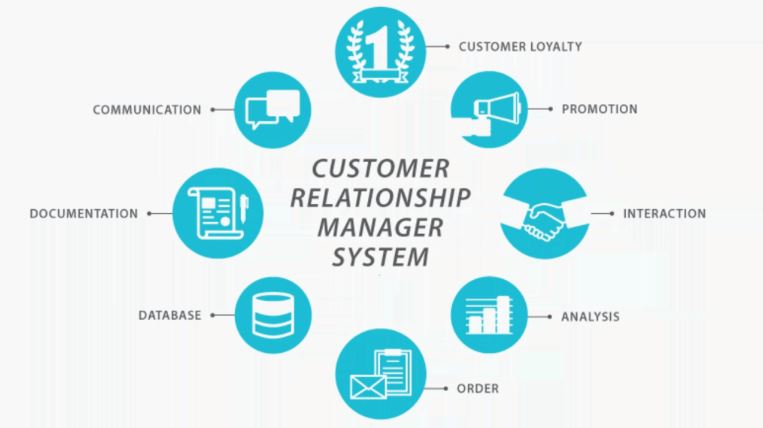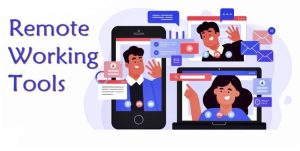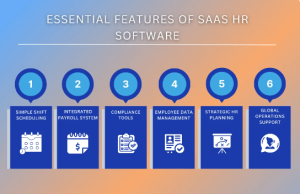As a business owner, your greatest desire is customer satisfaction. Did you know 70% of customers expect a seamless experience? Managing customer expectations is no easy task, from targeting leads, making calls, emailing, and keeping track of customer data to closing deals and building great customer relationships.
In the Best SAAS Customer Relationship Management systems for Businessescomes (CRMs) to aid business owners in delivering client expectations. In this article, I will guide you through the best CRM for different kinds of businesses, mentioning features that make them stand out.
Skale Money Key Takeaways
- CRM systems improve customer management, sales efficiency, and data handling for businesses of all sizes.
- Different CRM solutions are available for various business types, including B2B, hotels, and retail sectors.
- Implementing a CRM can lead to significant improvements in lead conversion, customer retention, and agent productivity.
- CRM analytics help businesses track crucial metrics like customer churn, close rates, and customer satisfaction scores.
- When selecting a CRM, consider factors such as business size, industry-specific needs, budget, and desired features to find the best fit.
Table of Contents
Customer Relationship Management systems for Businesses
Why do businesses need a CRM
Whether you are a small, medium-sized, or multinational company, CRMs come in handy. Tracking your customers’ activities is vital for business growth, and here are some reasons why every business needs a CRM:
Better Customer Management
This is where CRMs shine. In an era where customers are diverse with different demographics, a single person can’t keep track of all customers’ information. CRMs give your business staff direction on customer management and provide them with a secure platform on the cloud. They can keep track of the following crucial details:
- Support tickets
- Phone calls
- Emails
- Contracts
- Scheduling of appointments.
Efficient Sales Strategy
A satisfied customer is the best business strategy, and targeting the right clients saves you time and money. CRMs provide you with customer insights and automate mundane sales tasks. According to WebFx, Companies that use CRM systems have seen a 17% increase in lead conversions, a 16% boost in customer retention, and a 21% improvement in agent productivity. Here are some sales tasks you can automate with AI-powered CRMs:
- Researching prospects by using CRM chatbots
- Writing prospecting emails
- Prioritizing leads
- Creating sales scripts
- Taking notes from sales calls
- Following up with prospects
- Scheduling calls and appointments
Data management
Data is the new gold. As a business owner, you want to have your customer data in a secure platform. Integrated into CRM software is Artificial intelligence, which helps to manage customer insights in the following ways:
- Saving customer contact information
- Improve communication
- Marketing optimization
- Data analysis and reporting
- Scalability
Analyze your metrics
CRM analytics gives you an overview of your business. Analyzing your business metrics helps you know what is working well, what areas to improve, and what to stop doing. Here are some CRM metrics to be aware of:
- Customer churn: Number of customers you lose in a period
- Customer rate of renewal: How many customers continue buying over time?
- Customer retention cost: Amount it cost to maintain customers
- Close rate: Time it takes to convert leads to sales
- Net promoter score: Customer satisfaction in a range of 0-10
Track your profit
The bottom line for any business is knowing the return on investment (ROI). Shareholders need to be aware of their investment performance. Businesses that adopt a CRM-based strategy have reported a 50% increase in customer retention rates. CRM software helps you generate reports to share with company executives on how the business is performing. A CRM enables you to:
- Pinpoint highest value deals
- Understand your marketing better
- Allocate budget towards your highest converting campaigns
- Minimize wastage
Different types of CRM for businesses
There are many kinds of CRMs in the market tailored for different types of businesses. Let’s have a look at some scenarios:
B2B Customer Relationship Management
B2B means business selling to another business. An example of a B2B business is SAAS companies. Here are the best B2B customer relationship management systems:
HubSpot CRM
Hubspot needs no introductions in the digital marketing space. They have a free version suitable for small and medium-sized businesses. Some of the key selling points are:
- Email marketing
- Generating sales funnel
- Tracking leads
- Automating data entry
- Intuitive dashboard
- Extensive third-party software integrations
Hubspot pricing has a free package to get you started, a monthly pricing of 20 USD for the starter package, 800 USD for the Professional package, and 3600 USD for the Enterprise package.
ActiveCampaign
This is another popular CRM for B2B businesses. Active campaign’s strong point is email marketing, offering unlimited email sends. This is an excellent alternative to HubSpot, especially if you are on a tight budget. Additional features include:
- Email templates and customization
- Integration with third-party apps
- Application Programming Interface API
- Detailed analytics and reports on your email campaigns
ActiveCampaign pricing monthly subscription starts at:
- 39 USD for solopreneurs: 1 User,10x contact email send limit, and Includes 1,000 marketing contacts.
- 70 USD for small teams: 3 Users, 10x contact email send limit, and Includes 1,000 marketing contacts.
- 187 USD for professionals: 5 Users, 12x contact email send limit, and Includes 2,500 marketing contacts.
- 323 USD for enterprise: 10 Users, 15x contact email send limit, and Includes 2,500 marketing contacts.
ClickUp
ClickUp offers a free forever plan that helps you get started. Professionals highly rate it as a project management software. ClickUp strong points are:
- Flexible CRM views
- Keeping conversations in one place by sending and receiving emails directly from ClickUp tasks
- Creating custom stages that work for your unique sales process
- Setting reminders
- Zoom integration
- User-friendly interface with online and Offline Mode
ClickUp pricing is quite affordable as it even has a free forever plan. Its monthly subscriptions start from 10 USD for small teams, 12 USD for mid-sized teams, and a customized enterprise plan.
Customer Relationship Management for Hotels
The hotel industry thrives on customer satisfaction and reviews. As a business owner in the hotel industry, you don’t want to get negative reviews. All hotels and restaurants need a dedicated CRM to engage with clients such as tourists, suppliers, and customers.
Here are some CRM customized for hotels that help manage thousands of emails and customer inquiries.
Profitroom
Bringing you the right connections at the right time. Hoteliers have voted Profitroom the number 1 Hotel CRM & Email Marketing provider in the 2024 HotelTechAwards.
It gives hotels powerful data-driven insights that drive revenue, grow guest engagement, nurture long-term relations, and support direct booking strategy. To get a demo and pricing, contact Profitroom.
Smart Host GmbH
According to Smart Host GmbH, it enables hotels to “control all guest communications from one tool, always at the right time and through the right channel. Smart Host offers intelligent guest profiles with complete communication history, pre-& post-stay surveys for interests, upselling and ratings, data-driven and automated newsletter campaigns to fill booking gaps thanks to artificial intelligence, offer manager with messaging module and payment processing,”
Hotel Cloud
Ranked 7 out of 60 in the Hotel CRM & Email Marketing, Hotel Cloud is known for automatically identifying need dates and proactively promoting direct bookings. Main features include:
- Customized guest profiles
- Marketing automation
- Template builder
- Segmentation
- Privacy and Compliance
Hotel Cloud monthly pricing starts from £199 for the analytic package and £149 for the promoted package. You can also get a customized package based on your business needs.
Customer Relationship Management for Retail
Also known as B2C, retailers sell goods and services to final consumers as opposed to B2B businesses. To stand out from the competition, providing top-notch customer service is prudent. Here are some CRMs customized for B2C businesses.
Freshworks
This is among the best CRMs for retail. Freshworks identifies leads, accelerates follow-ups, and translates sales insights into revenue. Main features include:
- 360-degree view of customer information
- Automation for sales sequences and workflow
- AI-based in-depth analytics features
- Integration with the enterprise ecosystem
- Role-based permission-level security to help battle insider threats
Freshworks pricing starts from 29 USD per month, billed annually for the growth package, 69 USD for the pro package, and 109 USD for the enterprise.
Bigin
This CRM is suitable for small retail businesses and startups. Main features include:
- Affordable pricing to suit small retail stores
- Mobile Accessibility
- Seamless teamwork and collaborations
- Simplified sales funnel and customer relationship management
Bigin has a free version, and subscriptions start from 5 USD for the express package and 12 USD for the premier package.
Pipedrive
Pipedrive is excellent at sending advanced proposals. It helps you track business progress as your business grows. Its key features are:
- Lead and deal management
- Communication tracking
- Mobile app and integration with other apps
- Automation, analytics, and report generation
Pipedrive pricing starts from 9 USD per month, billed annually.
Conclusion
As a business owner, you need help by employing the best talent in the market and using the best tools available. Delegating work is essential for business growth and increasing profit margins. Do you have any CRM software? If not, it’s time to have one.
FAQ
What is a CRM system and why do businesses need one?
A CRM system is software that helps businesses manage customer interactions, track sales, and streamline processes. Businesses need CRMs to improve customer satisfaction, increase sales efficiency, and better manage customer data.
How can a CRM system benefit my business?
CRM systems can increase lead conversions, boost customer retention, improve agent productivity, automate sales tasks, provide customer insights, and help with data management and analysis.
Are there different types of CRMs for various industries?
Yes, there are CRMs tailored for different business types, such as B2B (e.g., HubSpot, ActiveCampaign), hotels (e.g., Profitroom, Hotel Cloud), and retail/B2C (e.g., Freshworks, Pipedrive).
How much do CRM systems typically cost?
CRM pricing varies widely. Some offer free versions (like HubSpot), while others range from about $10 to $3600 per month, depending on features and business size. Many provide tiered pricing options.
What should I consider when choosing a CRM for my business?
Consider your business size, industry-specific needs, budget, desired features, scalability, and integration capabilities with your existing software when selecting a CRM system.
Author: Cosmas Mwirigi
Cosmas Mwirigi is an established freelance writer with over five years of experience and the founder of Skalemoney.com. His content has been published by multiple publishers, including PV-Magazine, Slidebean, Bridge Global, Casinos.com, Gambling.com, and Reverbico. Mwirigi is an expert writer in iGaming, B2B, SaaS, Finance, digital marketing and Solar renewable energy. To contact him for his services, connect with him on his LinkedIn.
![]()




